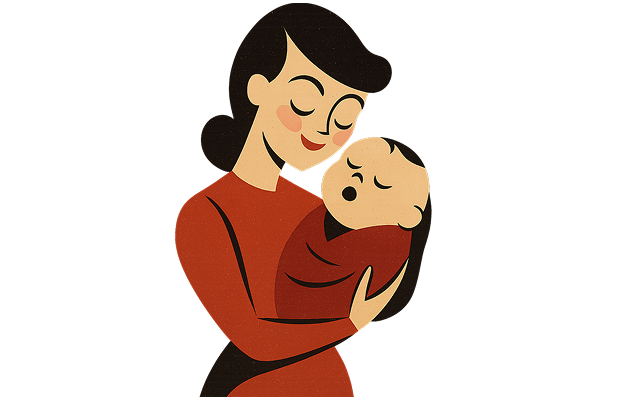
While fertility can vary individually, it's generally advisable to seek evaluation after one year of trying to conceive (or after six months if over age 35). Lakshmi IVF offers early fertility assessments to guide your journey.
Prenatal visits typically begin monthly until 28 weeks, then bi-weekly until 36 weeks, and weekly thereafter. Your care plan at Lakshmi IVF is personalized based on your health and pregnancy progress.
Heavy bleeding, severe cramping, dizziness, and persistent vomiting are potential warning signs. Contact Lakshmi IVF immediately if you experience any of these symptoms.
Preparation involves lifestyle adjustments, lab tests, and hormonal evaluations. At Lakshmi IVF, your doctor will guide you through every phase—from pre-cycle prep to post-transfer care.
Please bring any prior medical records, reports of blood tests or ultrasounds, your ID proof, and a list of medications. This helps us personalize your care at Lakshmi IVF.
Success rates depend on age and medical history. At Lakshmi IVF, we consistently deliver success rates aligned with global benchmarks, especially for women under 35.
Yes. Egg freezing is an excellent option for women who wish to preserve fertility for medical or personal reasons. Lakshmi IVF offers advanced vitrification techniques for safe, effective storage.
Yes. Preimplantation Genetic Testing (PGT) is available to screen embryos for chromosomal conditions and improve implantation success and healthy pregnancy outcomes.
We provide both medical and emotional support after pregnancy loss. Our counselors and fertility experts ensure you have guidance and healing before planning your next steps.
Absolutely. Lakshmi IVF offers virtual consultations for fertility and gynecology to help you start your journey with convenience and expert guidance.
If you've been trying to conceive for 12 months (or 6 months if over 35), it's a good time to consult a fertility specialist. Early evaluation at Lakshmi IVF can improve success rates.
Fertility tests typically include hormonal bloodwork, ultrasound scans, semen analysis, and sometimes specialized procedures like hysteroscopy or AMH testing to evaluate egg reserve.
IUI (Intrauterine Insemination) is less invasive and involves placing sperm directly into the uterus. IVF (In Vitro Fertilization) involves fertilizing the egg outside the body and transferring an embryo into the uterus.
Yes. High levels of stress can disrupt hormonal balance and ovulation. At Lakshmi IVF, we offer counseling and wellness support as part of a holistic fertility plan.
Most fertility procedures are minimally invasive and well-tolerated. We ensure patient safety and comfort with every treatment cycle, guided by international protocols.
Absolutely. Egg and sperm freezing are effective ways to preserve fertility, especially if you're not ready to conceive or undergoing medical treatment that could affect fertility.
Lakshmi IVF offers flexible treatment plans, EMI options, and transparent pricing. Our counselors will walk you through options to fit your budget and goals.
Yes. Maintaining a healthy BMI, eating a balanced diet, exercising moderately, and avoiding alcohol/smoking can all improve reproductive outcomes for both partners.
It varies. Some patients succeed in one cycle, while others may require multiple attempts. Your fertility history and embryo quality influence this. We monitor and adapt based on your response.
No, complete bed rest isn’t necessary. Gentle movement and normal activity are usually fine. We advise avoiding heavy lifting and intense workouts post-transfer. Follow your doctor’s guidance closely.
In IUI, washed sperm is inserted directly into the uterus during ovulation. IVF involves stimulating the ovaries, retrieving eggs, fertilizing them in the lab, and transferring an embryo into the uterus.
An IVF cycle typically takes 4 to 6 weeks, including ovarian stimulation, egg retrieval, fertilization, and embryo transfer. Lakshmi IVF provides step-by-step guidance and emotional support throughout.
Yes, egg retrieval is done under light sedation or general anesthesia to ensure your comfort. Embryo transfer, however, is a simple and painless procedure that usually doesn’t require anesthesia.
Both IVF and IUI are generally safe. Some risks include mild bloating, cramping, or multiple pregnancies. Our fertility experts minimize risks through close monitoring and customized protocols.
Success rates vary based on age, fertility history, and other health factors. At Lakshmi IVF, our IVF success rates are among the best in the region, with cutting-edge vitrification and lab technology.
Yes, donor sperm or eggs may be recommended in cases of low fertility or genetic conditions. Lakshmi IVF offers anonymous and screened donor programs with full confidentiality.
Embryo freezing (cryopreservation) stores unused embryos for future use. It's ideal if you're planning for later pregnancy, had extra viable embryos, or preparing for frozen embryo transfer (FET).
If IVF fails, we assess the cycle thoroughly, review embryo quality, and adjust protocols. Many patients succeed on subsequent attempts with personalized care and ongoing emotional support.
IUI is a quick and generally painless outpatient procedure. You may feel slight cramping, similar to a Pap smear. The entire process usually takes less than 10 minutes.
You can take a blood test (beta hCG) about 10–14 days after embryo transfer. We schedule this test at Lakshmi IVF to confirm pregnancy accurately and guide you on next steps.
You should schedule your first prenatal appointment as soon as you suspect or confirm your pregnancy, ideally between 6–8 weeks of gestation.
Folic acid, iron, calcium, and vitamin D are essential during pregnancy. Your Lakshmi IVF doctor will prescribe a prenatal vitamin based on your needs and blood work.
Weight gain varies depending on your pre-pregnancy BMI. On average, 10–15 kg is considered healthy. Your obstetrician will track and guide your gain at each visit.
Yes, moderate exercise like walking, swimming, or prenatal yoga is encouraged unless advised otherwise. Avoid high-impact or contact sports.
Avoid raw meat, unpasteurized dairy, alcohol, high-mercury fish, and excessive caffeine. A Lakshmi IVF nutritionist can help personalize your pregnancy diet plan.
Light spotting or mild cramping can be normal in early pregnancy. However, if it's persistent or painful, contact Lakshmi IVF Clinic immediately for an evaluation.
Most women begin to feel fetal movement between 18–22 weeks of pregnancy. If you're not feeling any movement by week 24, notify your doctor.
Typically, ultrasounds are done at 6–8 weeks, 12 weeks (NT scan), 18–22 weeks (anomaly scan), and third trimester growth scans. Additional scans may be advised if needed.
Contact your doctor if you experience severe abdominal pain, heavy bleeding, high fever, blurred vision, sudden swelling, or reduced fetal movement.
Yes, you can travel during a healthy pregnancy, ideally in the second trimester. Always consult your doctor before traveling, especially by air or long distances.
It is recommended to have your first gynecology exam between ages 13–15, especially if you're sexually active or experiencing irregular periods.
A Pap smear is a test to screen for cervical cancer. Women should start testing at age 21 and repeat every 3 years or as advised by their gynecologist.
Irregular periods can be normal during adolescence or perimenopause, but persistent irregularity should be evaluated to rule out PCOS or thyroid issues.
Pelvic pain may result from menstrual cramps, endometriosis, cysts, or infections. If it's persistent or severe, a medical consultation is recommended.
Options include pills, IUDs, implants, patches, injections, and condoms. A consultation at Lakshmi IVF can help you choose the best method for your lifestyle and health.
Common symptoms include irregular periods, acne, weight gain, facial hair growth, and infertility. Lakshmi IVF offers specialized PCOS management programs.
Endometriosis is when tissue similar to the uterine lining grows outside the uterus, causing pain and infertility. Treatment includes hormonal therapy or surgery based on severity.
Self-exams should be done monthly. Clinical breast exams are recommended yearly, and mammograms starting at age 40 or earlier if there's a family history.
Fibroids are noncancerous growths in the uterus that can cause heavy periods, pelvic pain, or infertility. Many don’t require treatment unless symptoms occur.
STI screening is recommended if you are sexually active with new or multiple partners. Lakshmi IVF provides confidential, safe, and comprehensive testing options.
Reach out to Lakshmi IVF today to schedule your consultation and take the first step toward building the family you've dreamed of.



At Lakshmi IVF, we are committed to guiding families with compassion and expertise on their fertility journey, every step of the way.